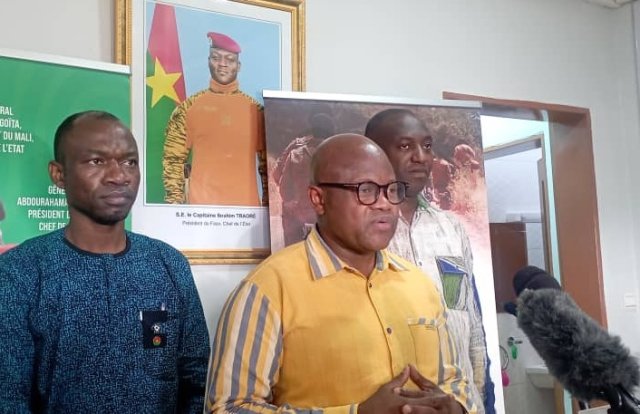Burkina Faso: The Health Ministry demonstrates steady progress amid challenges

During a routine performance evaluation session held on August 4, 2025, Health Minister of Burkina Faso Robert Lucien Jean-Claude Kargougou presented the mid-year implementation report to Prime Minister Jean Emmanuel Rimtalba Ouédraogo.
The Ministry of Health has achieved 46.74% of its physical implementation targets as of June 30, reflecting tangible progress across several critical health sectors despite operational challenges.
The ministry’s notable accomplishments include the treatment of over 60,000 malnourished children nationwide, with particular focus on nutritionally vulnerable areas affected by humanitarian and security crises.
Malaria prevention efforts have intensified through expanded community health worker programs, significantly improving access to both preventive and curative care in rural communities.
A targeted initiative has provided intermittent preventive treatment to more than 230,000 pregnant women, directly contributing to reduced maternal and neonatal mortality in high-prevalence regions.
Significant progress has been made in emergency medical services with the full operationalization of Ouagadougou’s SAMU (Emergency Medical Assistance Service), representing a major step forward in modernizing Burkina Faso’s emergency care system.
Expansion of this critical service to Bobo-Dioulasso, the country’s second-largest city, is currently underway.
Vaccination programs have maintained encouraging coverage rates despite difficult humanitarian conditions, with 48% of infants aged 0-11 months receiving the crucial third dose of pentavalent vaccine.
In a major public health achievement, nearly 97% of 9-year-old girls have been vaccinated against human papillomavirus (HPV), significantly bolstering cervical cancer prevention efforts.
These measurable outcomes demonstrate the ministry’s commitment to achieving its annual objectives while addressing complex operational challenges. The second half of 2025 is expected to see continued progress as these initiatives scale up across the country.
Jean SAWADOGO






